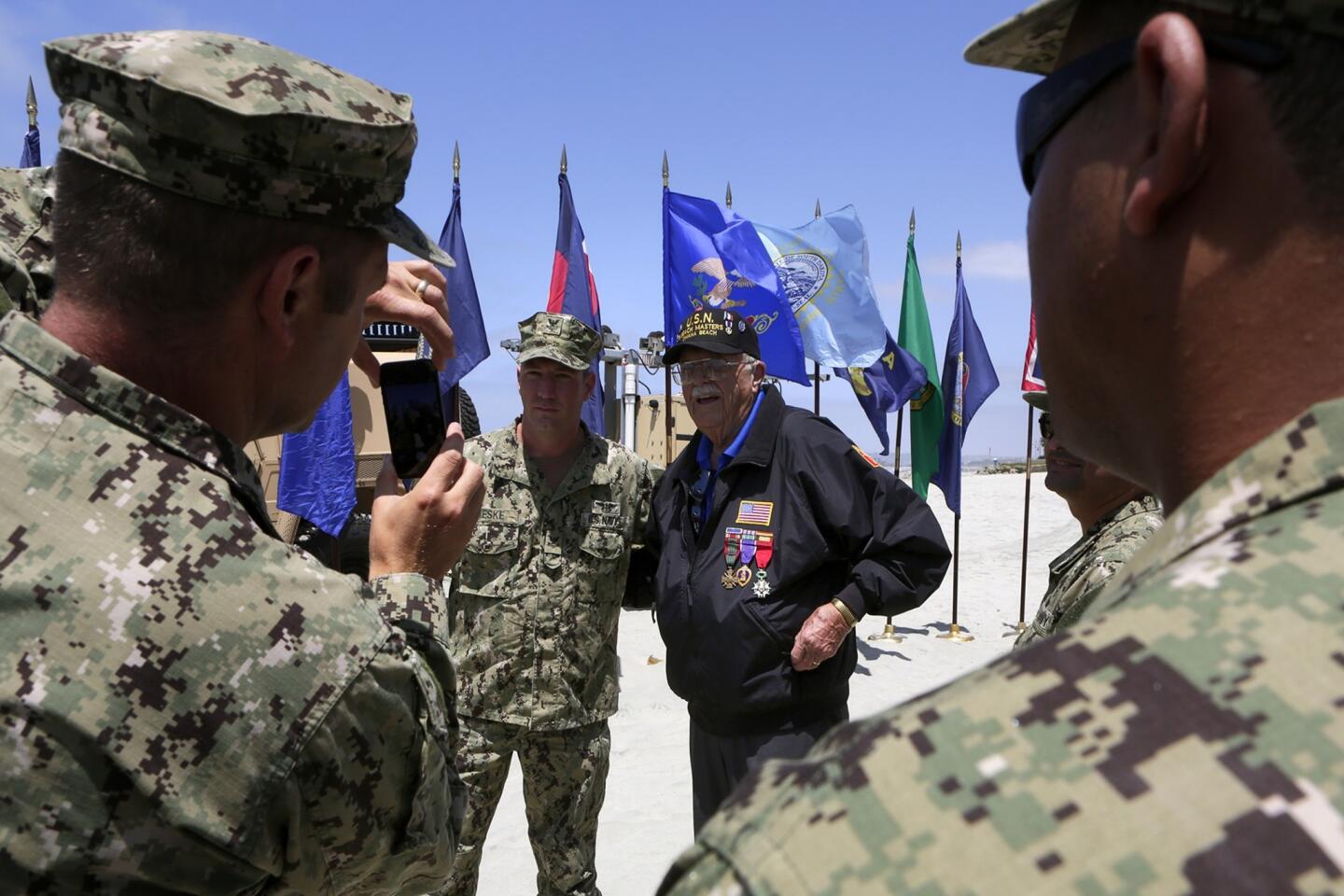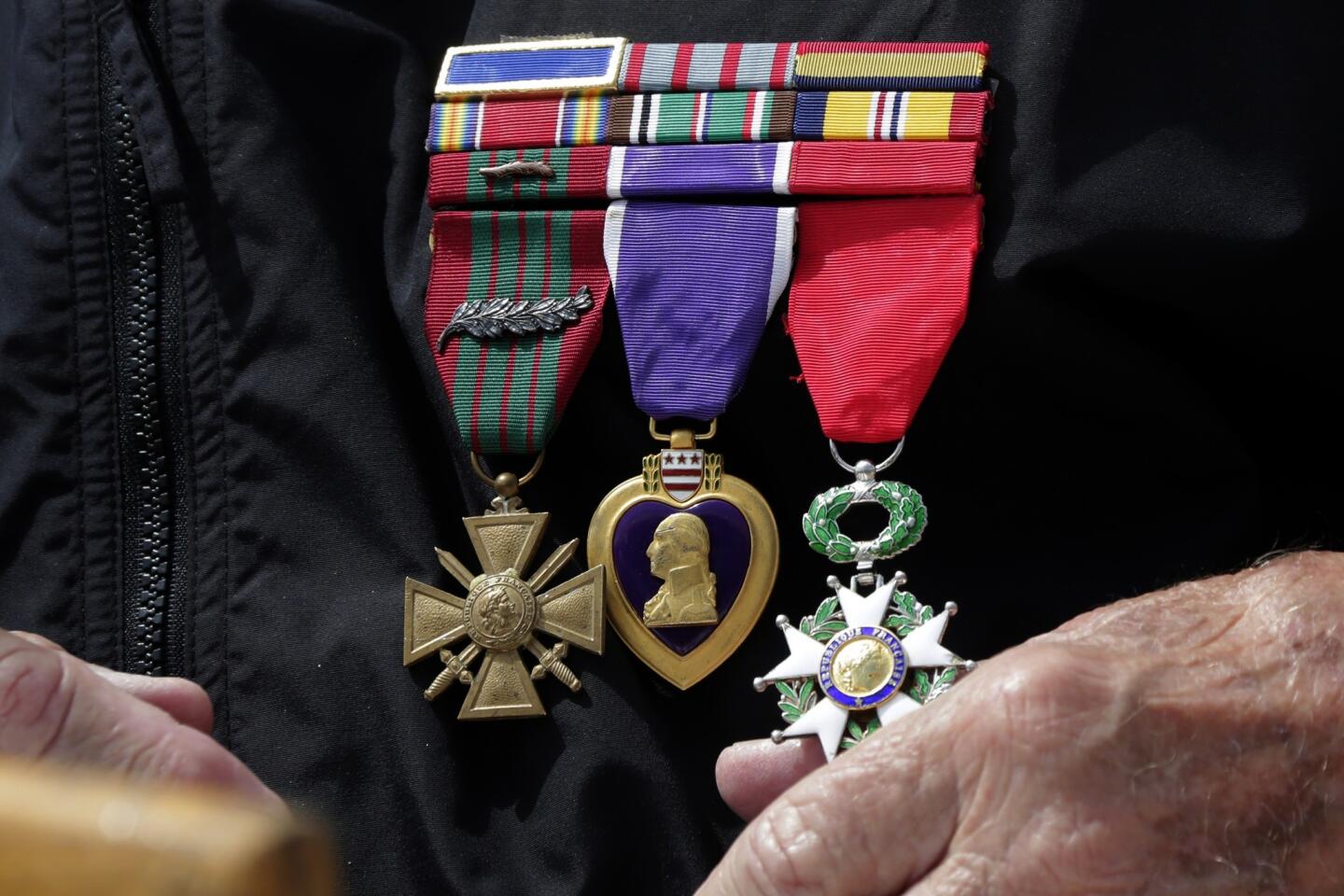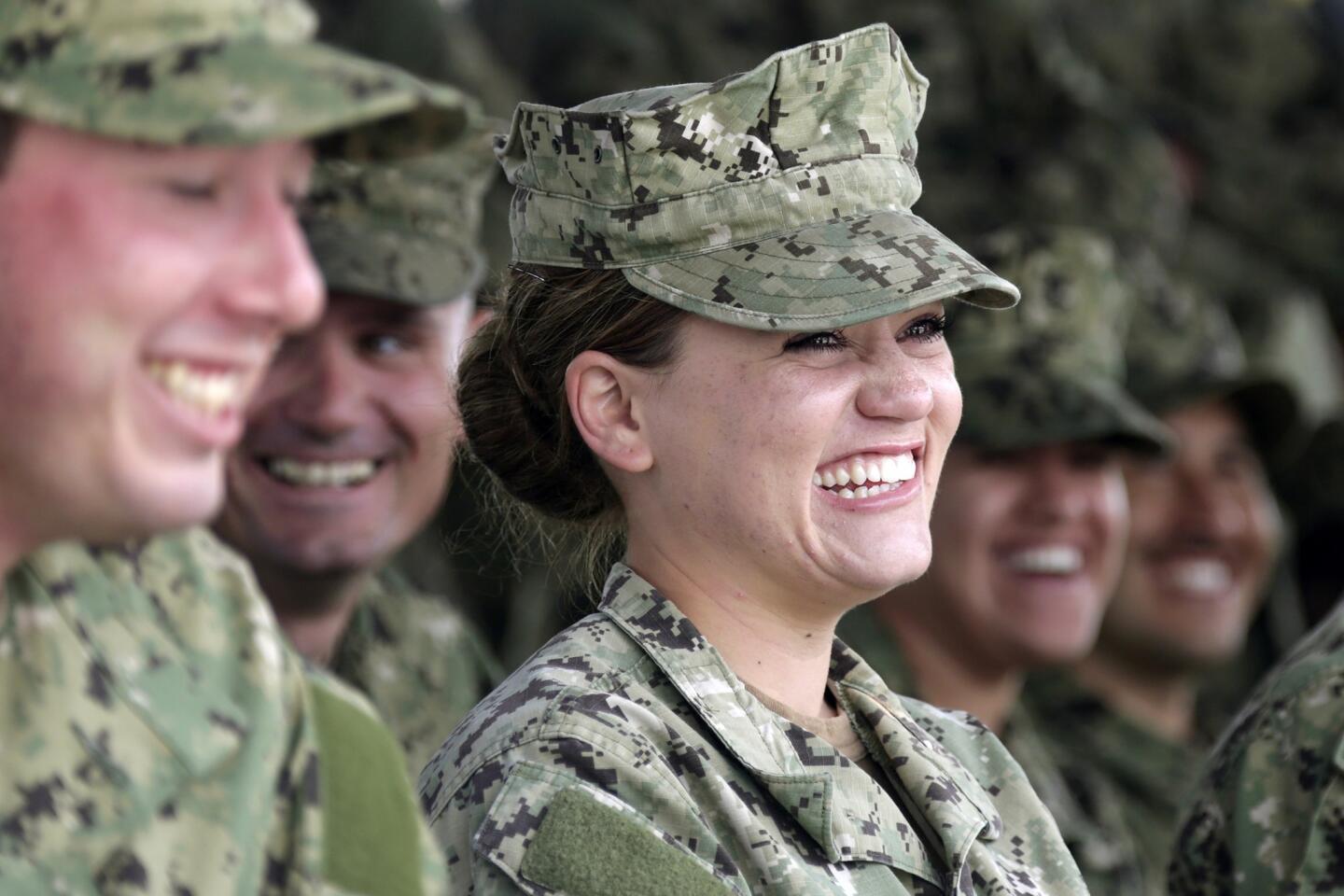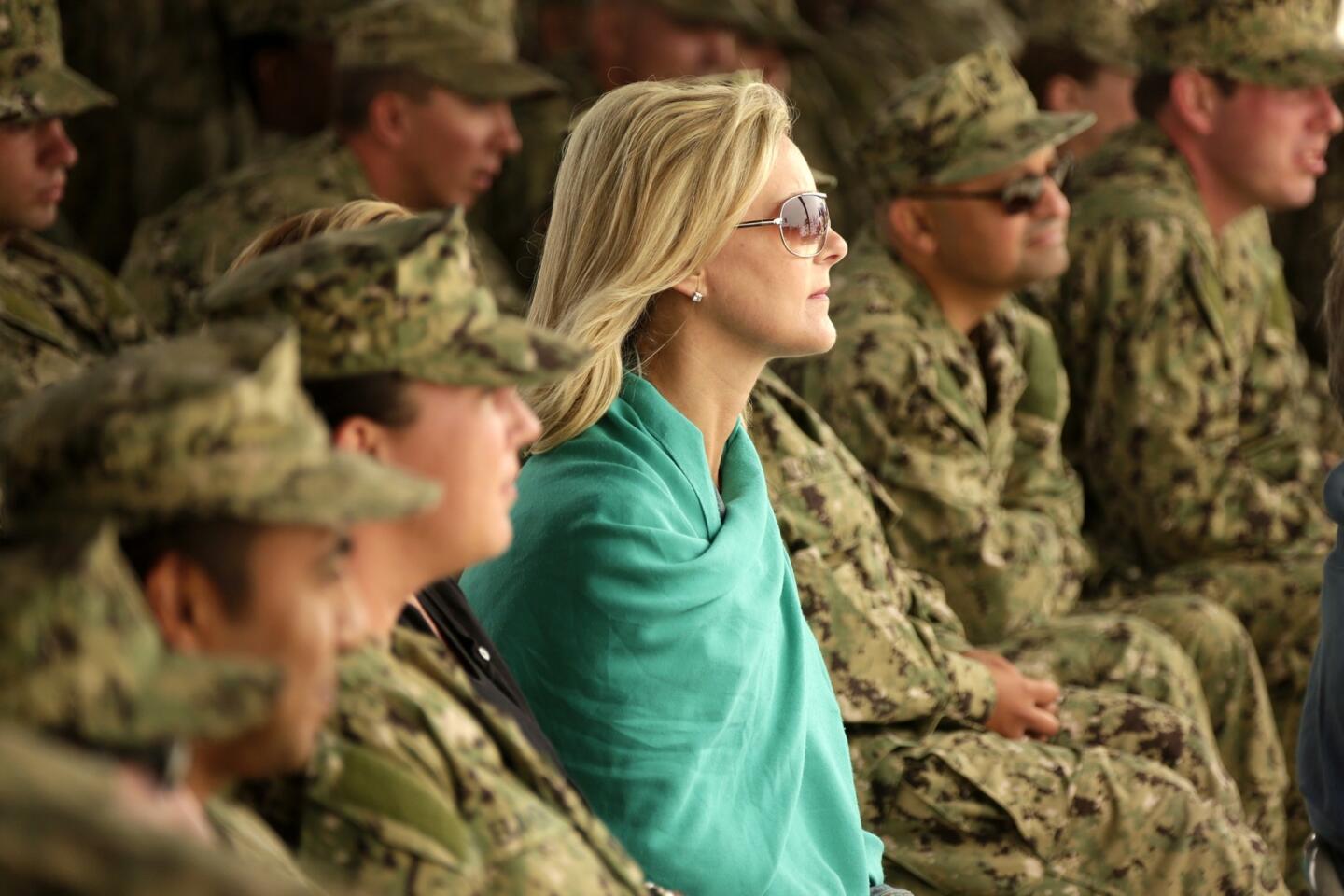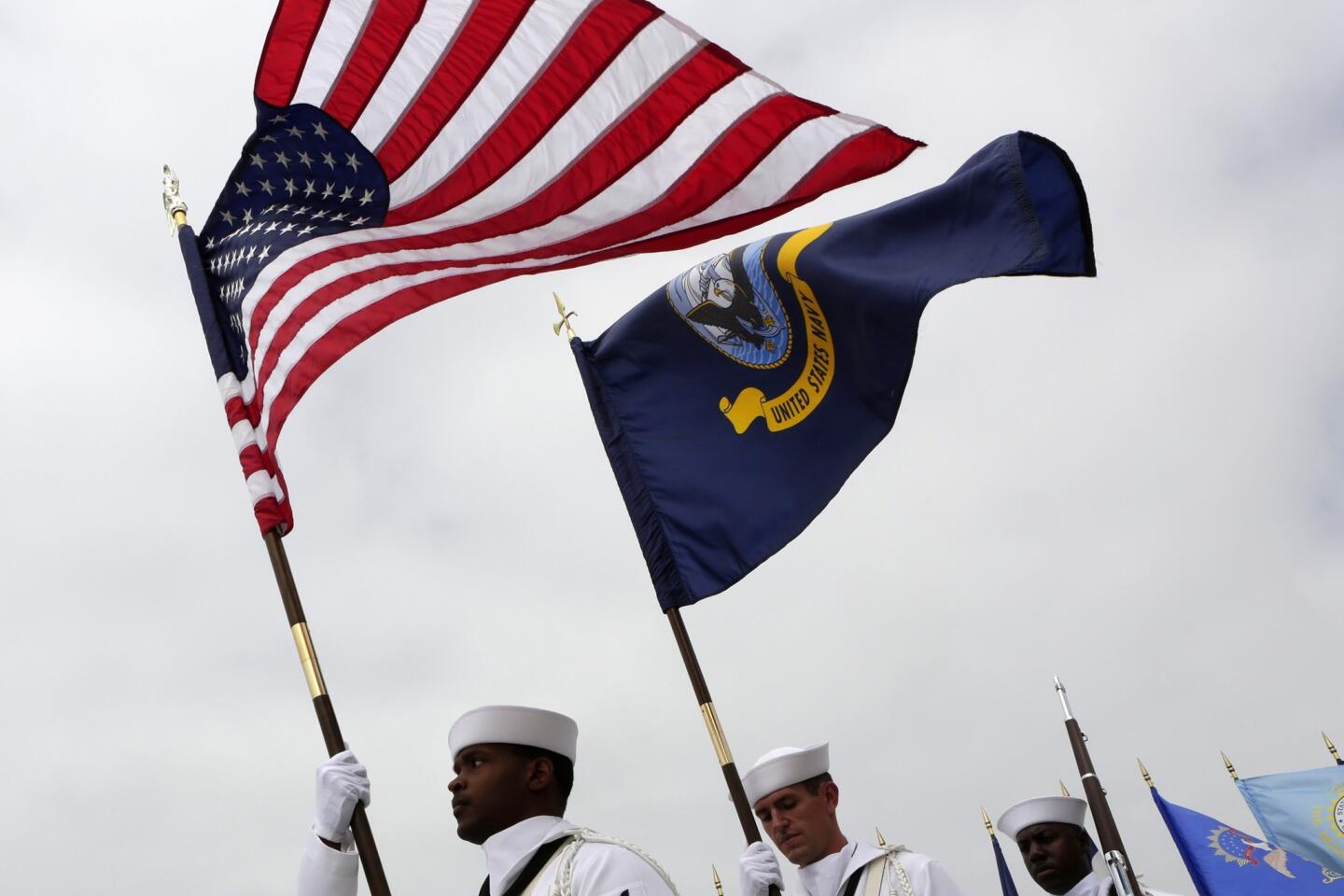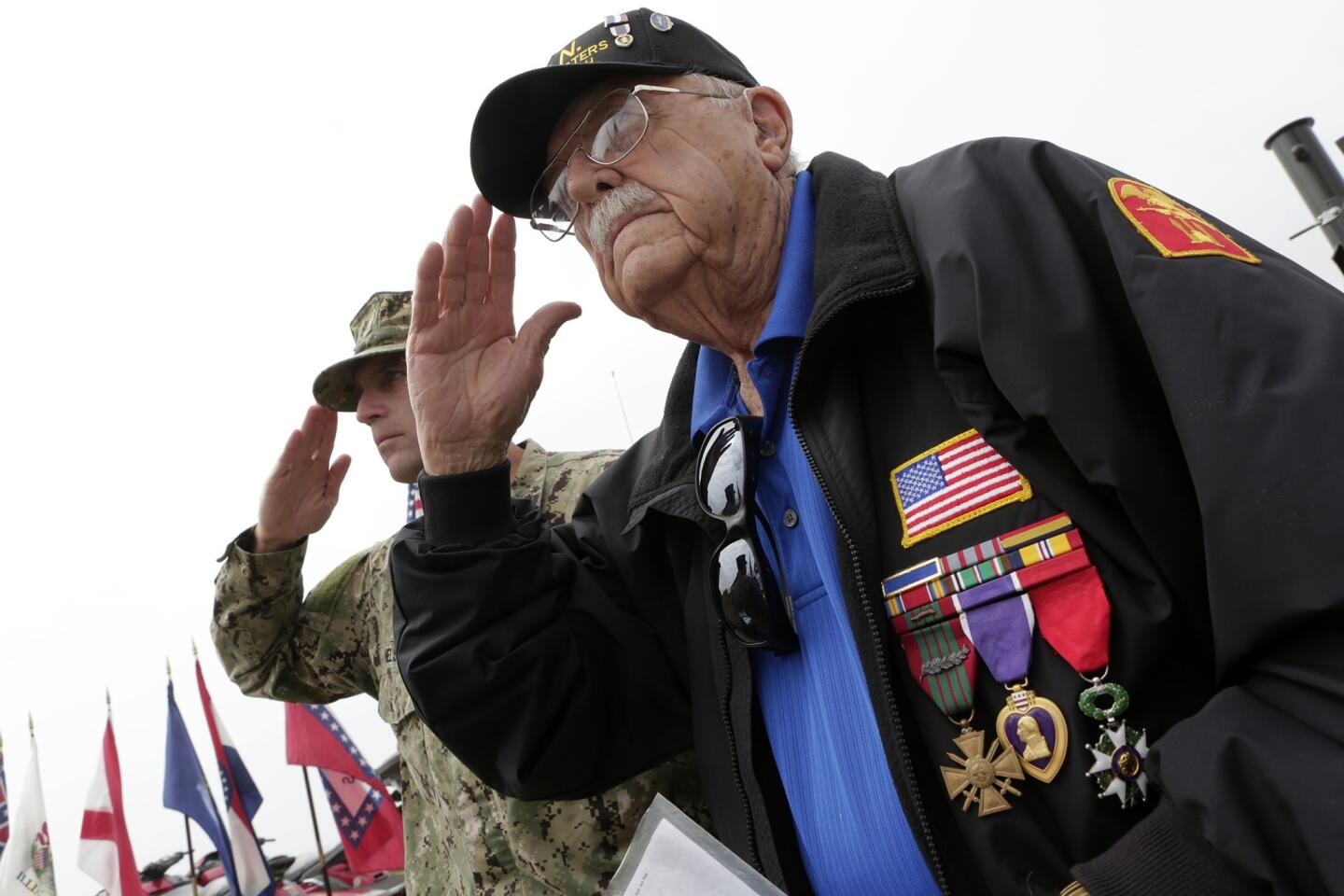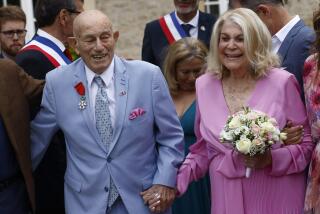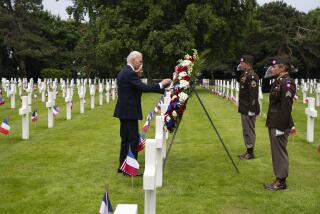His vivid memories of D-day help keep history alive
Each year as the June date arrives, interest in the D-day landing of World War II waxes or wanes depending on its numerical significance.
For Friday’s 70th anniversary of the amphibious invasion of Nazi-held Europe, President Obama was at Normandy for a multinational commemoration.
But what about next year?
One thing is certain: If he’s still able, Bob Watson will be lecturing school groups and others about the service and sacrifice of his generation. He brings pictures, maps, equipment and the firsthand observations of someone who, as an 18-year-old sailor, was in the first wave to land at Omaha Beach.
In the last decade, Watson, 88, has talked to numerous school classes, library gatherings and service organization meetings. He’s been on network television and filmed a story for the History Channel.
“I don’t want those kids to be forgotten,” Watson said. “Most of them said they were 18, but half of them were liars. They were 17 and lied about their age because they wanted to join the military and be part of it.”
For this year’s commemoration, Watson, who lives in San Marcos, was honored at a ceremony held on the beach by Beachmaster Unit One at the Naval Amphibious Base here.
“It’s good to hear where our legacy comes from,” said Petty Officer 2nd Class Paul Rodriguez.
Communication gear and other equipment have changed since World War II, but the task assigned to Watson and, seven decades later, to Rodriguez and other sailors is much the same: get the combat troops to the fight as quickly and efficiently as possible even if it means braving enemy fire.
“The job is almost identical,” said Lt. Cmdr. Geoffrey Belanger, operations officer of Beachmaster Unit One. “It’s an important job but not necessarily a complex one.”
Watson had been drafted in August 1943 and, after a few weeks of training, was assigned to the Navy’s 6th Beach Battalion and shipped to England.
Before leaving their ships on the morning of D-day, soldiers and sailors were ordered to take showers to reduce the risk of infection if they were wounded. An unusually sumptuous meal of steak and eggs was served.
An officer briefed the troops: “He was quite profound about it. We were going to have large casualties.”
As it lurched toward Omaha Beach, Watson’s landing craft hit a submerged mine. The explosion killed dozens of soldiers and blew Watson and others into the frigid, choppy water.
Men drowned under the weight of their heavy gear or because they put their life vest around their waist rather than under their armpits. “Everything around us was blowing up,” Watson said.
Watson struggled ashore by holding on to a rope from a small boat. His business card says he arrived at Omaha Beach at 7:27 a.m. but he admits he only uses that time because that’s when his watch was broken.
Once on the beach, the battalion’s task was to quickly organize the flow of troops, equipment, vehicles and heavy weaponry from ship to shore and then inland. German troops had the high ground and were raining down accurate fire.
Watson spent 28 frenetic days on Omaha Beach — collecting the Allied dead, getting medical care for the wounded, guarding prisoners and helping clear a path off the beach. He was ordered to drive a bulldozer even though he had never driven one. It hit a mine called a “bouncing Betty.”
A decade ago he met Steven Spielberg and Tom Hanks and complimented them on “Saving Private Ryan,” but he added that it was probably good that the movie did not show the full carnage of D-day because the public could probably not stand it.
He told Spielberg: “It was a hell of a lot worse than you showed.”
Wounded, Watson received a Purple Heart and was shipped to beachmaster school in Oceanside near Camp Pendleton.
At the USO he met a young woman named Marjorie; they’ve now been married for 68 years and have three sons. For decades, Watson ran a home construction business.
Although the French may have a reputation for coolness toward tourists, that is not the case when they meet someone who landed there on D-day. Watson has been back seven times.
“The French are just overwhelming in their gratitude,” he said. “I have only one problem with them: They’ve got to stop kissing me on both cheeks.”
More to Read
Sign up for Essential California
The most important California stories and recommendations in your inbox every morning.
You may occasionally receive promotional content from the Los Angeles Times.
